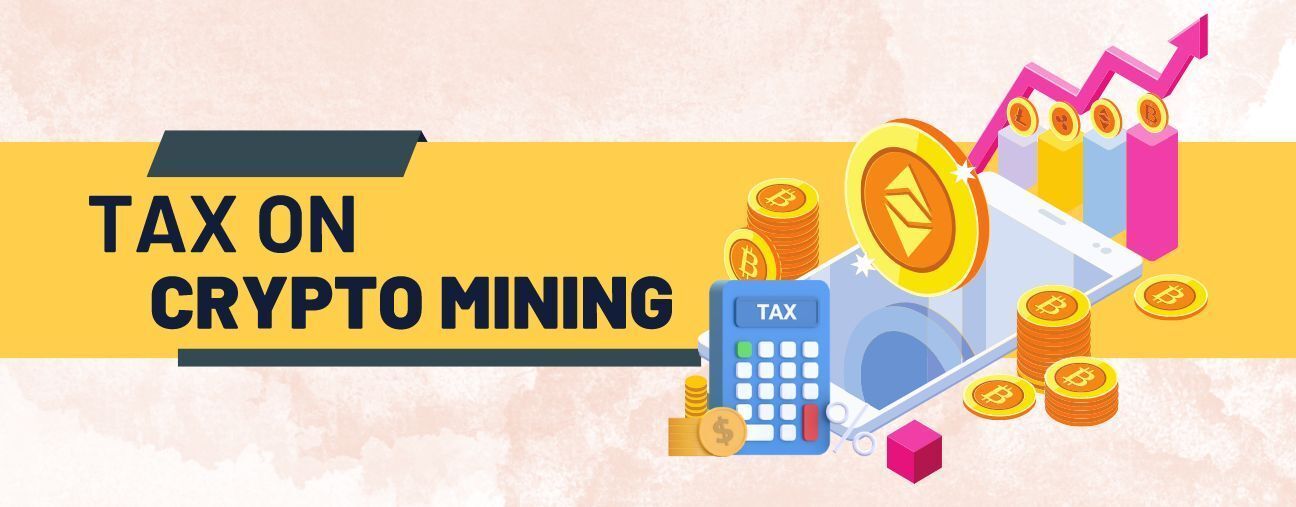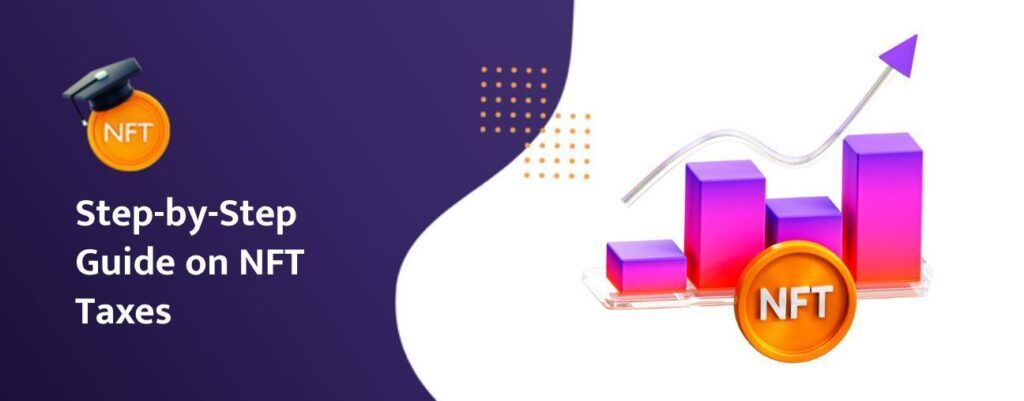Picture this: you’ve spent months carefully setting up a high-powered rig in your bedroom, eagerly watching your cryptocurrency rewards stack up. You finally see that glorious moment when you mine your very first block—and with it, a flurry of new tokens. Feels like hitting the jackpot, right? But here’s the catch: your triumphant mining success could come with a hefty tax bill. Both the United States and India have tightened their rules on crypto mining income, and with the 2024–2025 tax season looming, it’s more crucial than ever to get prepared. Ready to dig deeper? Let’s unearth the details.
Crypto Mining Basics: A Quick Refresher
- Definition: In proof-of-work networks like Bitcoin, miners validate transactions by solving complex algorithms, earning new coins as a reward.
- Mining Rewards: Often come in the form of the blockchain’s native token (e.g., BTC for Bitcoin mining). As adoption grows, more countries scrutinize these rewards for tax purposes.
- Upcoming Bitcoin Halving (2024): If you’re mining Bitcoin, remember that the block reward will halve to 3.125 BTC in 2024—potentially impacting profitability (and thus your tax obligations).
Why It Matters: As these tokens are minted and distributed to you, tax authorities generally view them as taxable income at the moment you gain control.
The US Perspective (2024–2025)
Income Tax vs. Capital Gains
- Income Tax
- When you successfully mine a block, the fair market value (FMV) of those newly created coins on the day you receive them counts as ordinary income.
- Rates can vary by your total taxable earnings; for the 2024 tax year, single filers might pay anywhere from 10% to 37% (plus any applicable state taxes).
- Capital Gains
- Once you sell, swap, or spend your mined coins, you’ll face another layer of tax based on the price difference (FMV at disposal minus FMV at receipt).
- If you hold your mined crypto for longer than 12 months, you might qualify for long-term capital gains rates (0%, 15%, or 20%). A shorter holding period subjects you to ordinary income rates.
Hobby Miner vs. Business
- Hobby Mining
- Report your mined coins’ value as “Other Income” on Form 1040, Schedule 1.
- You can’t deduct electricity or equipment costs beyond the income you earned.
- Business Mining
- File Schedule C (Form 1040) if you run a mining operation with clear intent to make profit (e.g., a registered LLC or consistent business-like activities).
- You can deduct certain expenses:
- Electricity (if it’s exclusively for mining—keep meter logs!).
- Hardware Depreciation (e.g., mining rigs).
- Repair Costs and Rented Space if you have a designated mining site.
- Net profit is subject to Self-Employment Tax for Social Security and Medicare.
Pro Tip: Many US miners consider forming a business entity to maximize expense deductions. However, you must keep meticulous records in case of an IRS audit.
The United States: Crypto Mining Expenses
You can deduct your mining costs as business expenses once you establish a mining operation as a company. Most cryptocurrency miners are aware that operating a lucrative mining operation is both costly and difficult. However, considering it as a business may help you reduce your tax bill. You can include the following business mining expenditures:
- Expenses on equipment, such as a mining rig.
- Equipment repairing costs.
- Costs of electricity.
- Deduction on home office or office space, if it’s applicable.
Always consult with a competent tax attorney about the best method to approach your mining activities from a tax standpoint.
The United States: Tax Implications & Reporting Crypto Mining Taxes to the IRS

The IRS requires you to disclose your crypto mining earnings on Form 1040 as part of your annual tax return. If you’re self-employed or operate a mining business, you report your earnings from mining on Form Schedule 1 (1040) or Form Schedule C (1040).
Difference between Schedule 1 & Schedule C
Schedule 1 is filed to report crypto mining as other income.
Schedule C is filed to report crypto mining as a business.
You’ll report any capital gains from selling, trading or spending mined coins on Schedule D (1040), as well as Form 8949.
Furthermore, the tax implications of crypto mining depend on a number of factors, including the country you’re in and the type of cryptocurrency you’re mining.
In the United States, the IRS views cryptocurrency as property. This means that any income you earn from mining cryptocurrency is subject to capital gains taxes.
If you mine cryptocurrency as a hobby, your profits are subject to capital gains taxes. You can deduct your mining expenses up to the amount of income you earned from mining.
If you mine cryptocurrency as a business, your profits are subject to self-employment taxes.
Deductions are available to offset the taxes you owe on your crypto mining profits. If you’re mining cryptocurrency as a business, you can deduct the cost of your mining equipment and electricity costs.
The India Perspective: 2024–2025 Developments
India has seen rapid changes to its crypto regulations in recent years, notably imposing a 30% tax rate on crypto gains. When it comes to mining:
No Infrastructure Deductions
- Under current guidelines, infrastructure costs (like GPU rigs, electricity, or other capital expenses) cannot be subtracted from your mining earnings.
- The law treats these expenses as capital in nature—thus not an allowable deduction from your taxable crypto income.
Tax Treatment of Mining Rewards
- 30% Tax on Transfer: If you later sell or transfer mined crypto, any gains may be taxed at 30% under India’s law for virtual digital assets (VDAs).
- 1% TDS: A 1% Tax Deducted at Source is typically levied at the time of transferring crypto assets if the transaction crosses certain thresholds (often $120 or INR 10,000 in local terms, though the rules can change).
- No Loss Offsetting: You generally cannot offset mining losses against other gains (or vice versa). Each crypto transaction stands alone for tax calculation.
Future Outlook
- Budget 2024–2025: Rumors swirl about potential refinements to the 1% TDS or additional clarifications for mining. Watch for official announcements from India’s Ministry of Finance or updates to the Income Tax Act.
- Record-Keeping: Because you can’t deduct many costs, it’s still wise to track them to prove your operational scale. Future changes could allow partial deductions or exemptions.
When & How You Pay Tax: A Quick Breakdown
| Event | Tax Type (US) | Tax Type (India) | Key Points |
|---|---|---|---|
| Mining Rewards Received | Ordinary Income (FMV on receipt) | Potentially viewed as VDA holding (FMV basis) | US: Include in Schedule 1 or C. India: Gains realized only upon further disposal; no direct cost deductions. |
| Selling/Trading Mined Crypto | Capital Gains (Short/Long-Term) | 30% on Gains (+1% TDS upon transfer) | US: Gains = Sale Price – FMV at mining. India: Gains taxed at 30% flat, no netting or carrying losses forward. |
| Converting to Stablecoins | Capital Gains Taxable Event | 30% on Gains (+ TDS) | Treated like any sale or swap in both US & India. |
| Gifting Mined Tokens | Potential Gift Tax (in US) or no cost basis | Complex Indian rules on gifts (rarely exempt) | Must check local gift tax thresholds. In India, gifts above certain threshold can be taxed. |
Note: This table is simplified. Always confirm with the official tax authority or a professional tax advisor.
Common Pitfalls & Practical Tips
- Ignoring Ongoing Tax Liabilities
- If your mined tokens drop in value after you’ve recognized them as income, you can’t retroactively undo that tax liability.
- Some miners sell a portion of each reward to cover prospective taxes right away.
- Untracked Equipment Usage
- In the US, if you claim business expenses, you must prove that your electricity and hardware usage is exclusively for mining.
- In India, no direct deductions yet, but keep records in case the rules evolve.
- Not Paying Estimated Taxes (US)
- If you expect to owe more than $1,000, you might need to file quarterly. Missing these deadlines can incur penalties.
- Misclassifying Hobby vs. Business
- If you’re turning a consistent profit and run your mining like a business (separate finances, marketing, etc.), the IRS may expect Schedule C. Attempting to classify a true business as a hobby can lead to audit flags.
- Ignoring 1% TDS in India
- Each time you sell or swap your mined tokens on an Indian platform, ensure the TDS is applied and recorded. If not, you could face compliance issues.
How does CRPTM help with Crypto Mining Taxes?
If you’re a crypto miner looking for an easy way to keep track of and report your mining taxes, CRPTM is your Crypto Buddy to assist.
You can integrate blockchains like BTC, BCH, and LTC with CRPTM via API to import all of your mining transactions into a single platform.
When your crypto mining transactions are synced, CRPTM will include them in your tax summary automatically. If you live in a jurisdiction where bitcoin or other cryptocurrency income is taxed as such and subject to income taxes, simply use the CRPTM tax calculator, generate your EOFY tax report in just under a few minutes and you are all set for submission.
Advanced Strategies (2024–2025)
- Partial Liquidation
- Sell a fraction of your mined rewards on a rolling basis to build a “tax buffer.” This approach helps if a bear market suddenly reduces your crypto’s value.
- Corporate Structures (US)
- Some large-scale miners set up C-Corporations or LLCs for better liability management and dedicated business expense write-offs.
- Consult a CPA or tax attorney to see if this suits your scale.
- Potential Future Deductions (India)
- Keep all receipts for rigs, electricity, rent—just in case India’s tax laws change to allow partial cost offsets. While not currently deductible, legal frameworks can shift.
- Stay Current on Proposed Regulations
- In the US, be aware of the proposed 30% excise tax on electricity usage for crypto mining. It’s still in legislative limbo, but if enacted, it could significantly affect operational costs.
Bringing It All Together: Quick Example
Scenario: Neha mines 0.5 BTC in March 2025 when 1 BTC is $40,000.
- US
- Day of Receipt: 0.5 BTC = $20,000. She reports $20,000 as ordinary income (Schedule 1 or C).
- A month later, BTC jumps to $50,000. If she sells her 0.5 BTC for $25,000, her capital gain is $5,000 (i.e., $25,000 – $20,000).
- She might owe federal + state income tax on $20,000 (receipt) plus a capital gains tax on $5,000.
- India
- Day of Receipt: 0.5 BTC is recognized at $20,000, but no immediate tax.
- If she sells at $25,000, that $5,000 difference is taxed at 30% = $1,500, plus 4% cess and any applicable surcharges. Also, 1% TDS (~$250) might apply at the time of sale, withheld by the exchange.
Result: Clear difference in how each country treats the day of receipt and subsequent disposal.
How to Simplify Your Crypto Mining Taxes
- Automated Tracking Software: Tools like CRPTM, CoinLedger, or other crypto tax calculators can auto-sync your wallet transactions.
- Regular Bookkeeping: Record each day’s mining rewards, the FMV, and any subsequent disposal info (dates, amounts, exchange rates).
- Hire Professional Help: For large-scale mining or business operations, consider hiring a crypto-savvy CPA or CA (Chartered Accountant in India).
- Separate Mining Wallet: Keep your mining inflows in a dedicated wallet to simplify cost basis calculations.
Final Word: Prepare, Don’t Panic
Crypto mining can be an exciting (and profitable) endeavor—but it comes with a host of tax responsibilities that vary by country. In the US, you’ll need to account for both income and capital gains taxes. In India, your profits can get hit with a 30% tax (plus TDS), and you can’t deduct mining infrastructure costs right now.
2024–2025 may bring additional changes—whether it’s new legislation or clarifications on existing rules—so stay tuned. By tracking your rewards, understanding local laws, and consulting tax professionals, you’ll stay ahead of potential pitfalls.
Ready to keep more of what you mine? Start organizing your transactions today—your future self (and your wallet) will thank you.
Disclaimer: The information presented on this website is intended for general informational purposes only and should not be interpreted as professional advice from CRPTM. CRPTM does not offer financial advice. We strongly recommend seeking independent legal, financial, tax, or other professional advice to determine how the information provided on this website applies to your specific circumstances. CRPTM assumes no liability for any loss incurred, whether due to negligence or otherwise, resulting from the use of or reliance on the information contained herein.




